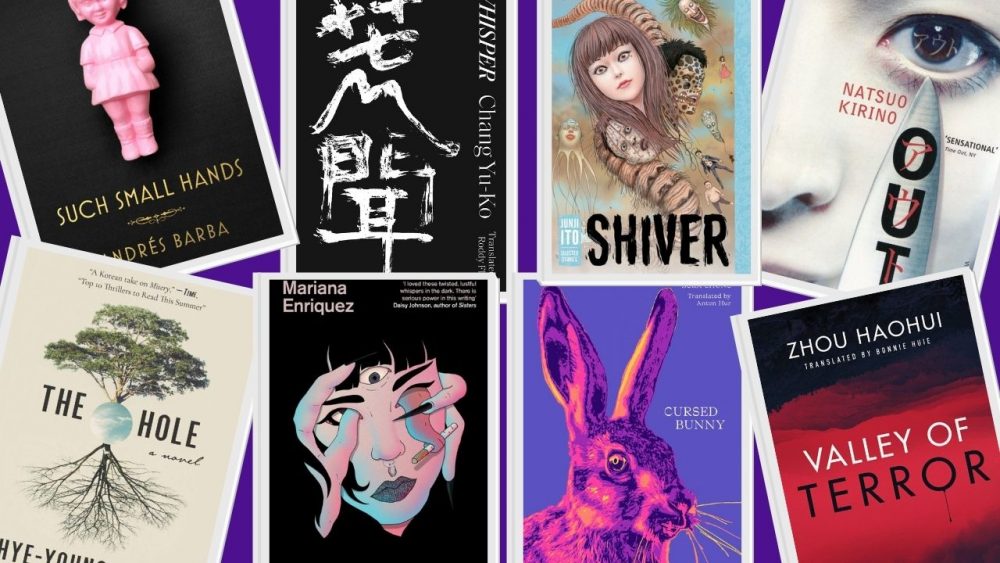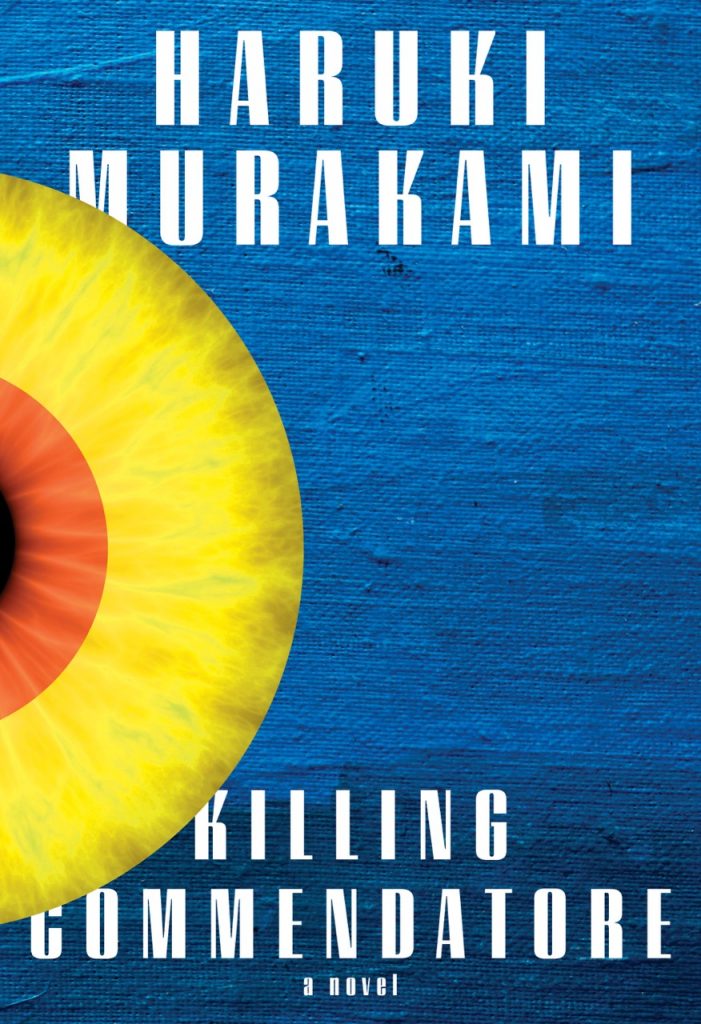There is no end to the surrealism, the beauty, the variety found in Japanese literature. Japanese authors and stories expose the human heart; they travel through time and place and dreams. And the best of these tales can be found in Japanese short story collections.
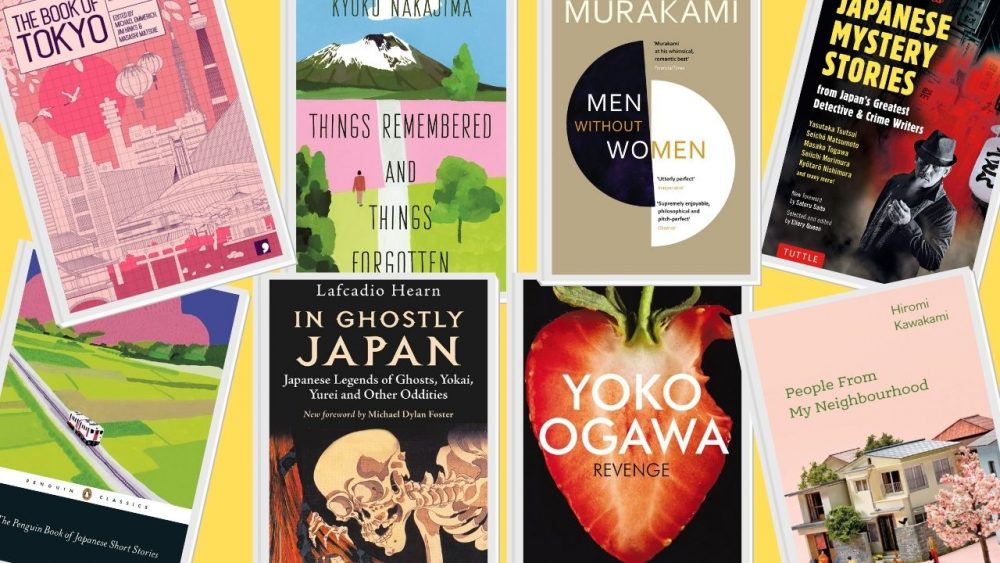
Must-Read Japanese Short Story Collections
Many of the best Japanese authors, known for their award-winning novels, have also penned some truly moving short story collections that are very much worth your time. From the short comics of Junji Ito to the twisted tales of Yoko Ogawa, these are the best Japanese short story collections you can read right now. Stories of cities, people, ghosts, and stranger things besides.
Life Ceremony by Sayaka Murata
Translated by Ginny Tapley Takemori
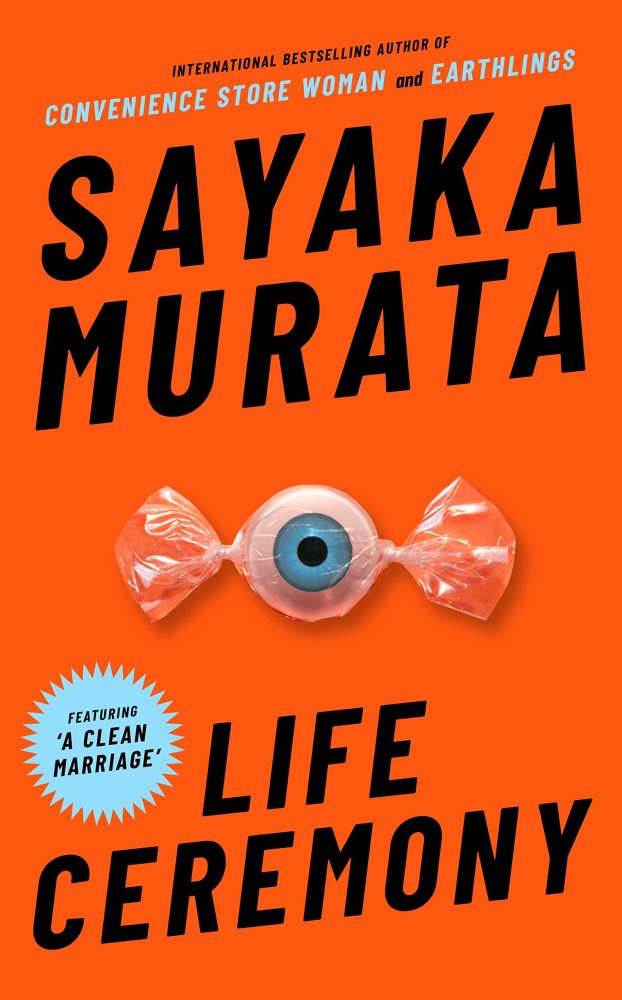
Sayaka Murata has made a name for herself through depictions of characters and events that are frightening, confusing, shocking; upending the status quo in some way.
In Convenience Store Woman, the presented us with an autistic-coded protagonist who has no desire to follow the tracks that most of us are happy to ride through life.
In Earthlings, she went further than that by aggressively fighting back against ordinary life through taboo and terrifying acts that leave the reader feeling shaken and shivering.
Life Ceremony treads similar ground to Earthlings. These are stories that lay out a calm and peaceful world, place an itchy and uncomfortable protagonist down on the board, and then flip the table.
Most of the spaces presented here are either similar to our own, and the protagonist thinks and behaves in a way that doesn’t fit, or they are scary worlds that our protagonist cannot function in.
For example, the first story takes place in a reality where human body parts are made use of after we die: usually turned into clothing or furniture. Our protagonist finds this revolting and yet seems to be alone in feeling that way.
Other stories dare to explore the same universal taboos that Earthlings dealt with — incest, cannibalism, and more — and the characters who perform these acts are far outside the status quo.
The stories in Life Ceremony can be read as queer-coded, or metaphors for neurodiversity. They are relatable for anyone who doesn’t fit the life mould that we are expected to quietly exist in.
Things Remembered and Things Forgotten by Kyoko Nakajima
Translated by Ian McCullough MacDonald and Ginny Tapley Takemori
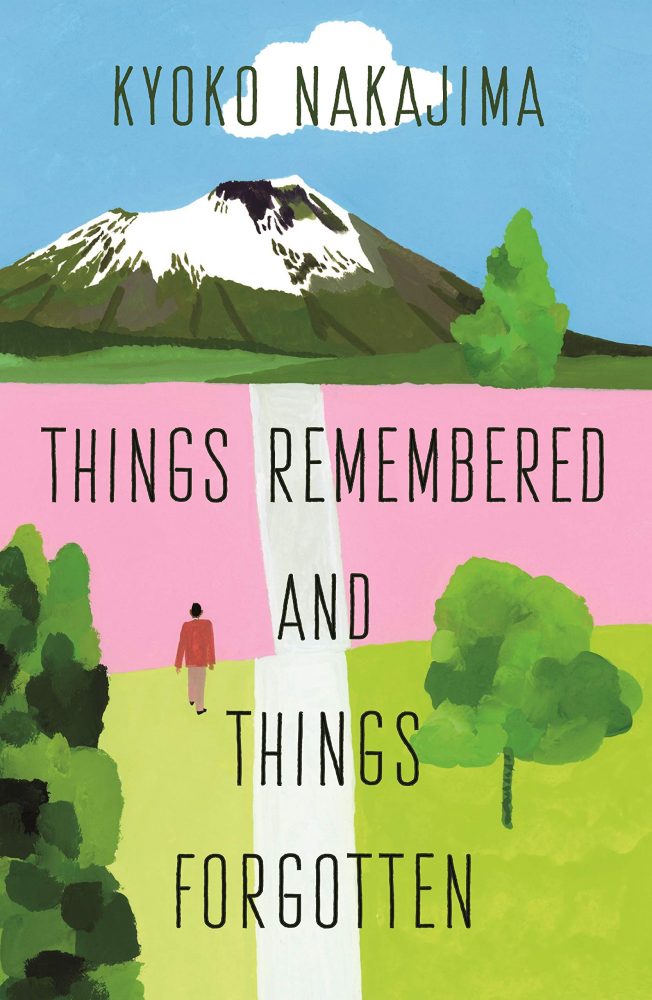
Kyoko Nakajima is an author celebrated in Japan and beyond for her Naoki Prize-winning novel The Little House. She is also author of the to-be-treasured Japanese short story collection Things Remembered and Things Forgotten.
This is a collection of ten tales, all of which sensitively and deftly explore the relationship between time, history, place, and people. Moving across the spectrum of 20th Century Japanese history, these stories have a way of going straight for your heart.
In the titular story, a retired man and his wife visit the man’s older brother in a home. The older brother has succumbed to dementia and the younger brother relates to his wife tales of their youth during the American occupation of Japan post-World War II.
Another story begins with a woman admiring a selection of sewing machines at an antique store, before settling on one which the owner declares “doesn’t have a heart”.
From here, we get the sewing machine’s life story, which shows snapshots of the lives of the people who have used and owned it over the decades.
The stories charm, soothe, serenade. They are calming, beautiful, warm tales of love and family and history.
This is an essential Japanese short story collection that should be read by fans of Japanese literature and the short story medium alike.
Terminal Boredom by Izumi Suzuki
Translated by Polly Barton, Sam Bett, David Boyd, Daniel Joseph, Aiko Masubuchi, and Helen O’Horan

Izumi Suzuki was a very special writer and person. Her colourful career included acting, modelling, and writing. This collection, Terminal Boredom includes a selection of speculative science fiction stories written by Suzuki later in her life.
While she was celebrated as a feminist in all aspects of her career, she really made her name as a writer, and these stories vividly show why that is. These are the best kinds of science fiction stories; ones which take real-world concerns and twist them into nightmare scenarios.
The opening story, for example, imagines a world in which women existed before men. Then, when men came about, they instilled the patriarchal system we all live in today, before then beginning to die out.
Many of these stories consider the effects of pollution and overpopulation. They centre on ordinary people living through strange scenarios like, for example, a government mandated cryogenic freezing of normal members of society in order to tackle the population crisis.
These are radical, punk sci-fi tales by one of the best authors of the Japanese short story format. Izumi Suzuki was a true gift to the art of Japanese short story writing.
Hit Parade of Tears by Izumi Suzuki
Translated by David Boyd, Sam Bett, Daniel Joseph, and Helen O’Horan

Following the success of Terminal Boredom, Verso Books and four incredible Japanese-to-English literary translators brought us another punk and subversive collection of stories by the legendary Izumi Suzuki.
Hit Parade of Tears collects eleven tales of wildly differing lengths (some only a handful of pages long; others long enough to be called novellas).
Each challenges the concepts of fantasy and science fiction, twisting these genres into new and strange things. These tales are bleak, funny, feminist, angry, and often deeply allegorical and political.
One tale tells of a woman who is given the transformative powers of witchcraft, and she turns them on her cheating, worthless husband.
Another follows a girl as she visits her brother in some strange and monstrous medical institution or asylum.
The titular Hit Parade of Tears is set in a fascist future reminiscent of modern-day North Korea, and slowly drip-feeds us the context for how such a world could blossom out of contemporary Japan.
Revenge by Yoko Ogawa
Translated by Stephen Snyder
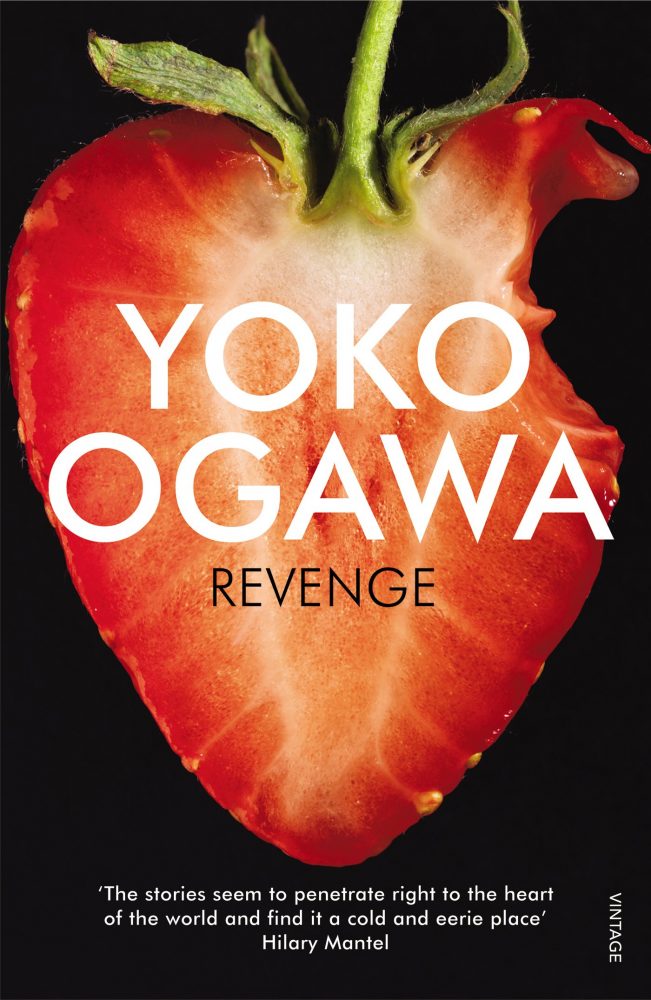
There is no Japanese author quite like Yoko Ogawa, and her short story collection Revenge is perfect evidence of that. These are eleven subtly interconnected tales that share specific and twisted themes, as the title implies.
These stories place ordinary people in extraordinary situations, always dark and chilling. They are not horror short stories, per se, but they are certainly dripping with dread.
Take the story Sewing for the Heart, in which a bag maker receives an unusual order from a young woman who requires a bag be made to carry her own heart. Or Afternoon in the Bakery: the tale of a woman who, every year, buys a cake for her son who died twelve years ago.
Every Japanese short story in this collection, like all of Ogawa’s books, excel at taking ordinary, human characters and stretching them by filling the world around them with odd, unexpected, sometimes nauseating things.
The Diving Pool by Yoko Ogawa
Translated by Stephen Snyder

The author so nice she’s listed twice. And Yoko Ogawa really is that special. She is arguably this writer’s favourite Japanese author, and her collection The Diving Pool is a big reason for that.
While not strictly a Japanese short story collection, The Diving Pool is actually a book of three novellas, each around 50 pages in length. The titular story, The Diving Pool, is a quietly twisted tale of lust and suppressed emotion.
The protagonist of this story is a teenage girl whose Christian parents run an orphanage, and she has grown up with a foster brother from this orphanage. As she has developed, however, she has harbored an increasingly intense obsession with him.
As the title implies, she enjoys sneaking into the school pool and watching him dive, admiring his shape and form.
The second story, Pregnancy Diary, details the feelings and experiences of a young woman as she watches her sister (and sister’s husband) go through a pregnancy. It’s unnerving and discomfiting at times, as all three tales in this Japanese story story collection are.
Picnic in the Storm by Yukiko Motoya
Translated by Asa Yoneda
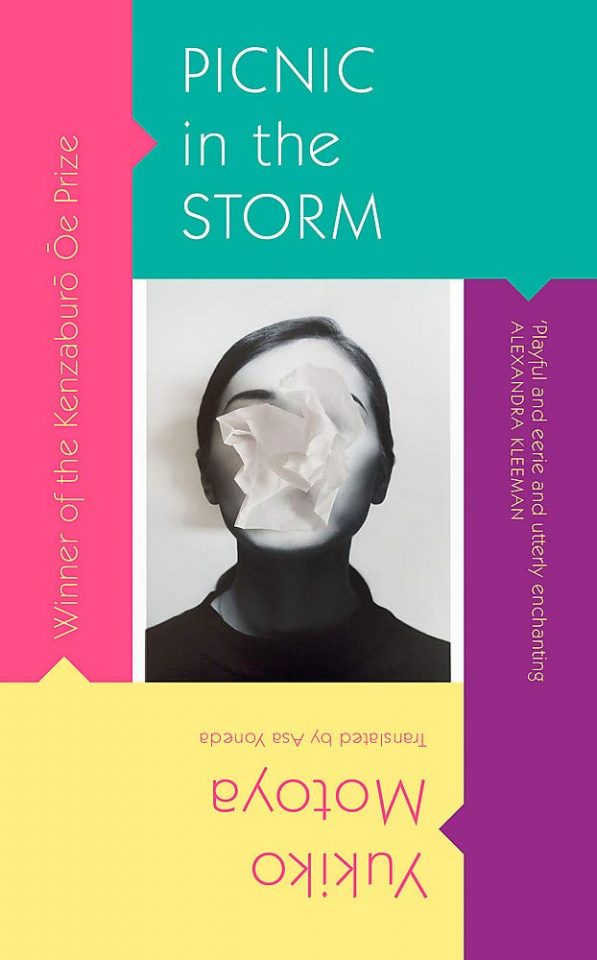
Known as The Lonesome Bodybuilder in some places and Picnic in the Storm in others, this is a Japanese short story collection full of surrealism and feminist gusto.
In the titular The Lonesome Bodybuilder in which a woman, ignored by her lethargic husband, quickly develops an obsession with bodybuilding.
She attends the gym ritualistically until she becomes a Goliath figure, and all the while her husband fails to notice her transformation.
The metaphors at play here, and in the other tales, ranging from the obvious to the subtle, and all end in hilarity and often outright strangeness.
Our protagonist’s dramatic body change, and her husband’s clueless nature, will undeniably speak to those woman and men who have had a haircut or worn a new jacket and received no comment from their spouse.
But dig deeper and you see a woman so desperately sick of the expectations of society that she stretches out her body, choosing to take up more physical space rather than less – as is too often expected of women.
Another excellent story is I Called You by Name: the small story of a woman chairing a meeting in her office but growing increasingly distracted by this bulge in the curtain, perhaps betraying someone hidden behind it.
As the story builds, the bulge shifts and shrinks as our protagonist admits to herself that the bulge is in her mind – a representation, I believe, of the things in life she urges for: a husband and a child.
These, however, are things she has been forced to ignore in order to be taken seriously professionally. This is a very real sacrifice that women around the world are led to feel that they must make.
Dead-End Memories by Banana Yoshimoto
Translated by Asa Yoneda
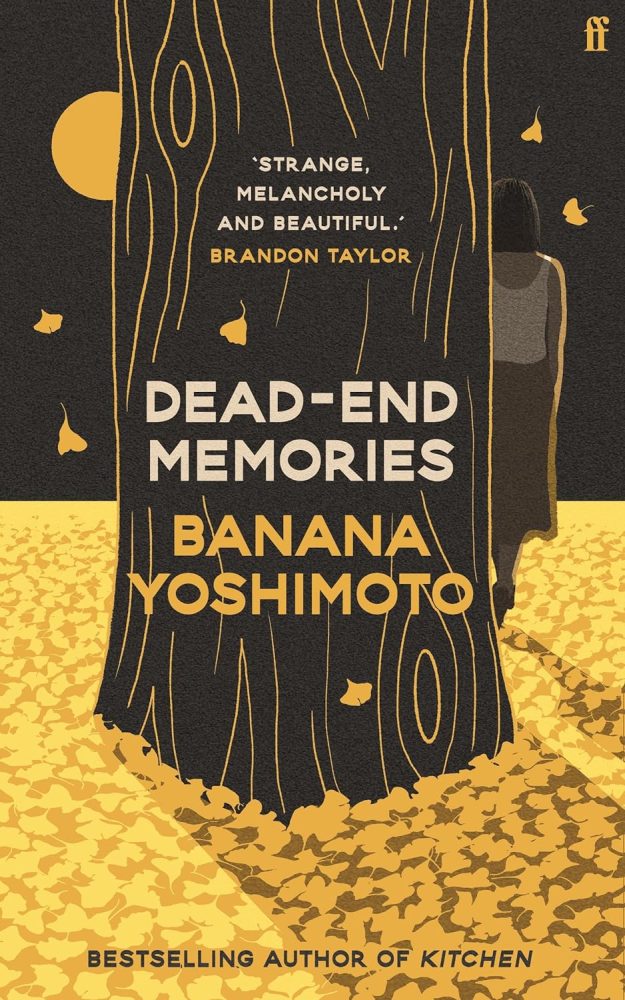
Banana Yoshimoto is an author known for her intimate and unique approach to writing about the intersection between love and death. Dead-End Memories, however, is more focussed on self-love and healing. The book’s title story follows a young woman reeling from a breakup and living above a bar owned by her uncle. She falls into a friendship with a young barman who works there, and together they are able to heal and grow into better selves.
House of Ghosts is a tale of young love: both the protagonist and a boy she meets are the children of successful local business owners. We watch them bond, lust after each other, and eventually fall in love before he decides to study abroad in Paris. Mama! is the story of a book editor who is poisoned by an ex-employee in the office cafeteria, and this near-death experience provides her a new perspective on life.
Across two hundred pages, these five stories offer readers the chance to mull over how we spend our days, how we view our friendships and our romantic relationships, and how we might make the best of the time we have. These stories are a little different from what Yoshimoto often puts out, but they also couldn’t have been written by anyone else.
People From My Neighbourhood by Hiromi Kawakami
Translated by Ted Goosen
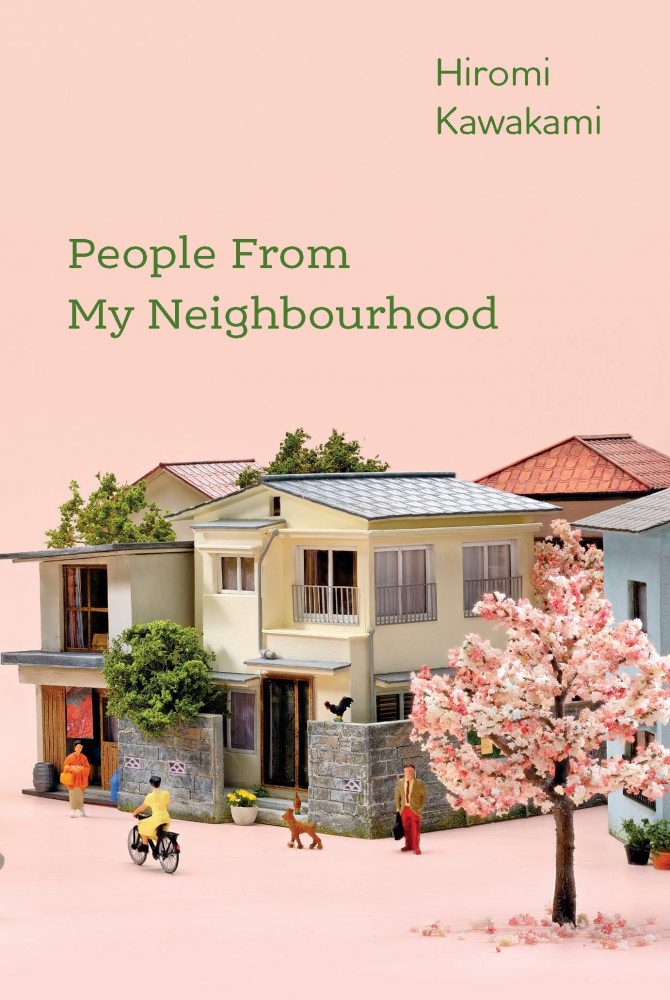
Hiromi Kawakami is a big name in Japanese literature. Her novel Strange Weather in Tokyo was the first Japanese book in translation that this writer ever read, and it has remained a firm favourite for many years.
People From My Neighbourhood sees Kawakami flexing her surrealist and comedic muscles to wonderful effect. This is a tiny collection of even tinier tales that splendidly captures the eccentricities of ordinary people.
The titular neighbourhood of this book is nestled in an uncanny valley where anything can happen. Across roughly 120 pages, we are offered 36 short and amusing stories of around 2-5 pages apiece, each one ranging from slightly strange to excitedly deranged.
The subtle strangeness of this neighbourhood is hugely reminiscent of Royston Vasey in The League of Gentlemen: a place full of usual people who behave unusually or are subject to unusual circumstances, be they quietly supernatural, antisocial, or plainly bizarre.
A wonderfully quiet example is “The Hachiro Lottery”, in which a boy named Hachiro, who is the fifteenth child of a local family, is passed around from household to household because his family cannot afford to keep and feed him. It’s one story among many which teeter between unusual and unsettling.
Compare “The Hachiro Lottery”, which is only quietly odd, to “Grandpa Shadows”, the short story of a man with two shadows, one far more sinister than the other. The sinister shadow has a habit of attaching itself to another person for days at a time as a kind of curse.
Dragon Palace by Hiromi Kawakami
Translated by Ted Goossen
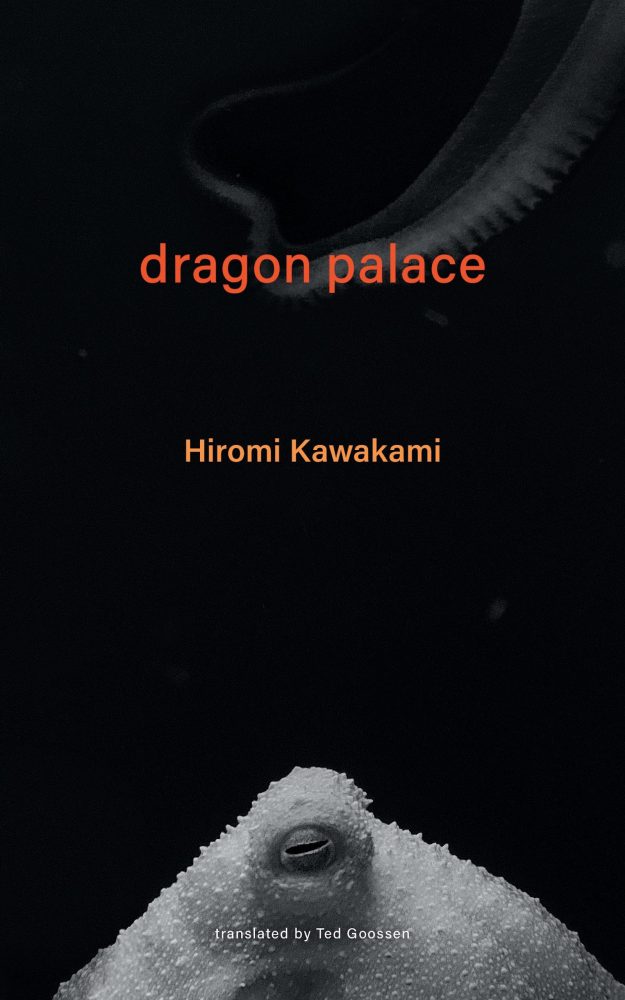
Dragon Palace is another fantastic collection of short stories from one of modern Japan’s most beloved and popular authors.
Across 160 pages, readers are presented with eight tales of transformation. All of them are written in the first person, from the perspectives of women and men who transform or witness transformation in some way.
Inspired by myths and folklore, with occasional reference to Buddhism and the many deities of Shintoism, these stories feature half-humans born in the ocean depths and people possessed by the spirits of gods and ancestors.
One memorably story in this collection, Mole, presents us with a world in which humans and anthropomorphised moles coexist, and while the moles are shunned and disliked, our mole protagonist spends his days saving the lives of humans who have given up hope and come close to death.
The titular story, Dragon Palace, is told from the perspective of a young woman whose great-grandmother visits her in a tiny form, and we learn that this old woman was a god who used sex to manipulate her worshippers.
These are stories of love and beauty and cruelty and desire. They are stories that bend and break the boundaries of social expectations and human experiences, and in doing so they reveal the fatal flaws in all of us.
An incredible collection of Japanese short stories from one of the nation’s finest authors.
Buy a copy of Dragon Palace here!
Where the Wild Ladies Are by Aoko Matsuda
Translated by Polly Barton

Aoko Matsuda’s Where the Wild Ladies Are offers sixteen incredibly human stories about the lives of modern-day Japanese women and men.
There is, quite simply, so much fun to be had with this Japanese short story collection. Many of the stories here provide us with an angle: that of a young woman or man in a strange or difficult situation.
From there it introduces a ghostly presence or a transformative power to befriend, overcome, or embrace.
These are thrilling short stories of ghosts and monsters in the everyday. They’re sometimes strange and jarring, especially given the juxtaposition of ape-like monsters and castle-haunting ghosts with modern suit-and-tie culture, but that is simply part of the fun that is to be gleaned from these tales.
Where the Wild Ladies Are never forgets how wonderfully weird the tales of yokai are, and it uses them to offer us a stream of witty, biting, eccentric, and dark tales of feminism in modern Japan.
Longing and Other Stories by Junichiro Tanizaki
Translated by Anthony Chambers and Paul McCarthy
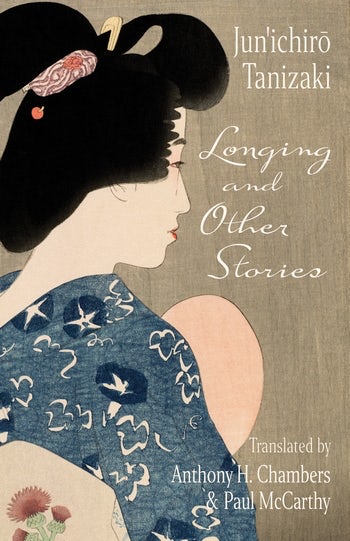
Longing and Other Stories is a new collection of three Junichiro Tanizaki short stories: Longing, Sorrows of a Heretic, and The Story of an Unhappy Mother.
Tanizaki was one of 20th Century Japan’s most beloved and influential authors, having penned works like The Makioka Sisters, A Cat, A Man, & Two Women, and Some Prefer Nettles. Now, we have three short stories/novellas that explore the unifying theme of family — specifically, a young man’s relationship to his mother.
Each of the three tales in this Japanese short story collection is written in a different literary style. One is a dream sequence; another is a grounded piece of biographical auto-fiction; and the third is something in-between, defined by its off-centre narration.
The different styles beautifully — almost romantically — demonstrate Tanizaki’s love for literature and the written word. He is exploring different methods of narration, plotting, and structure, all while presenting us with one core theme in all three stories.
That theme is, as I said, a man’s relationship to his mother. In Longing, our narrator dreams of his life as a boy, wandering an unfamiliar rural street at night and searching for his mother.
Sorrows of a Heretic is supposedly Tanizaki’s most autobiographical work. Its protagonist is an immature young student in his mid-twenties, living at home, frustrated by life, racked by guilt, and engaging in frequent arguments with his younger sister, who happens to be dying of tuberculosis.
The final tale, The Story of an Unhappy Mother, involved two brothers: one is our narrator, but the other is our protagonist. The protagonist is newly married, and the story explores that man’s strained relationship with his mother before and after his marriage.
This is a beautiful and immaculate Japanese short story collection from one of Japan’s greatest writers.
Men Without Women by Haruki Murakami
Translated by Philip Gabriel
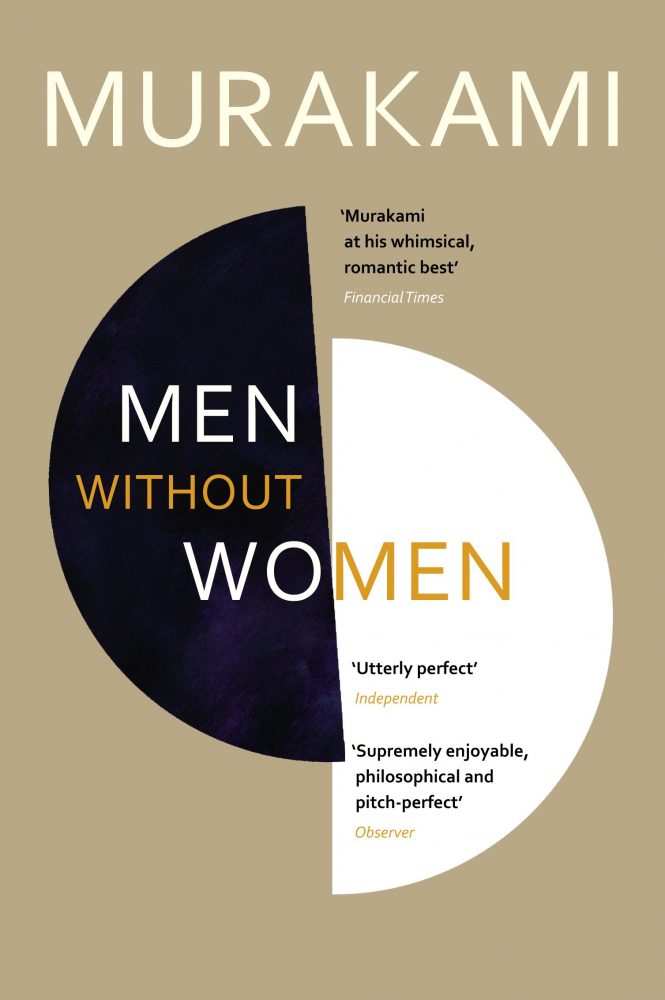
Haruki Murakami, Japan’s most successful literary export, is well-known for writing elaborate and lengthy novels tinged with surrealism and recurring tropes. It’s very refreshing, here, to see him flex a few different muscles and write some engaging short stories instead.
Men Without Women makes its theme clear from its title: this is a Japanese short story collection that explores the relationship between men and women in the modern world.
Lonely men populate these seven stories, as do his usual cats, Beatles, and jazz bars. But the lost, broken, and vulnerable men of these stories show a very exposed side of Murakami and his writing. Not every story packs a punch but the ones that do are fantastically memorable.
Shiver by Junji Ito
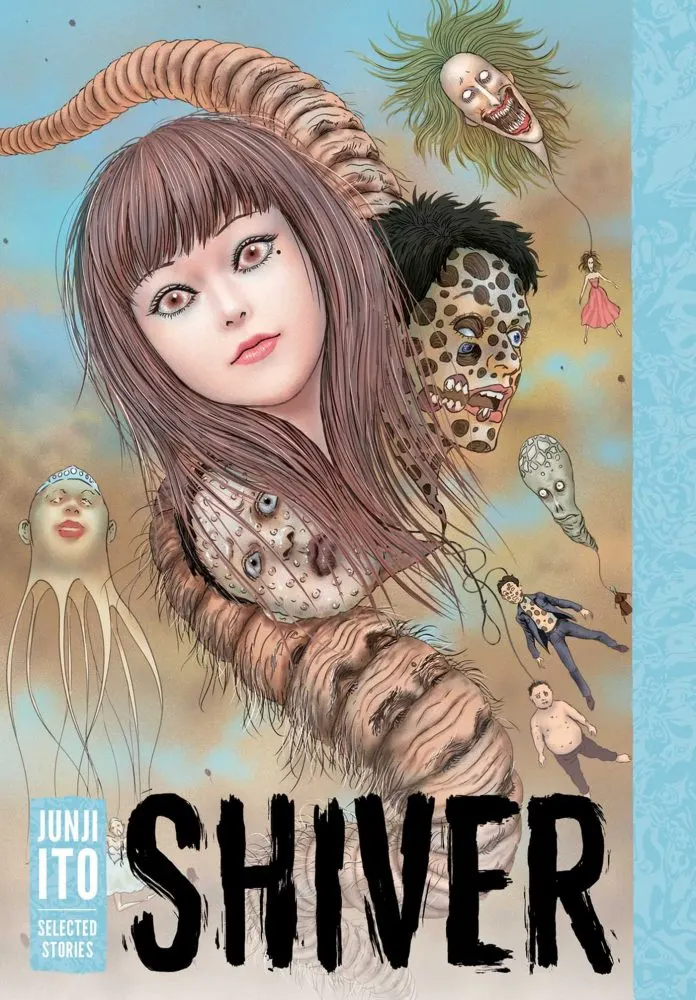
While Shiver may be filled with comics rather than prose, it is still a Japanese short story collection through and through. This is also the finest sample of Junji Ito stories you can find. If you’ve had a morbid interest in Ito’s are and stories for a while, Shiver is where you should start.
The stories in this collection are all unique and separate from one another; they show off the depth and breadth of Ito’s artistic and narrative talents to an astonishing degree.
The best of these tales is, perhaps, Hanging Balloons. This short story imagines a world invaded by enormous balloons, each one with the face of a real person. Your balloon stalks you, a noose hanging from its bottom, and if it catches you, it hangs you.
Another story, The Long Dream, shows us a man in a hospital bed who lives entire lives every time he dreams. When he wakes, his body has aged as well, eventually turning him into an impossibly ancient, horrifyingly morphed thing.
These really are the best of Junji Ito, and Shiver is one of the finest Japanese short story collections you can read.
In Ghostly Japan by Lafcadio Hearn
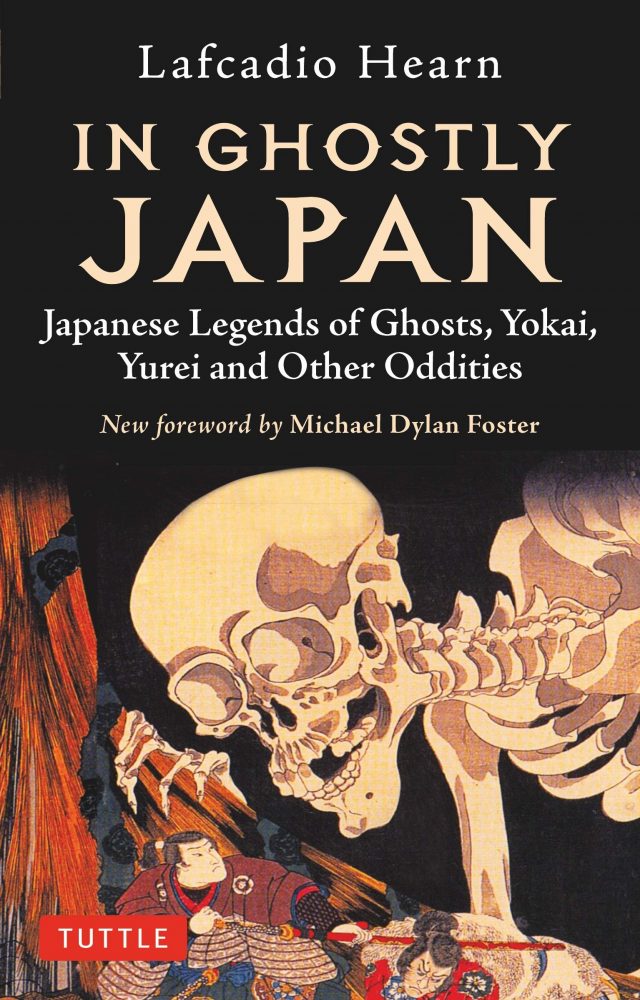
Born in Greece, raised in Ireland and the US, Lafcadio Hearn was already middle-aged when he arrived in Japan. Once there, however, he married and put his journalism background to good use transcribing classic Japanese horror stories and folktales into English.
While these short ghost stories are not written by a Japanese author, they are all Japanese ghost stories in origin; Hearn simply made them accessible to English-language readers.
Japan has a deep history of folkloric terror. The ghosts and yokai of Japanese folklore are famed and beloved the world over, and much of that fame can be attributed to Hearn and this Japanese short story collection: In Ghostly Japan.
Ellery Queen’s Japanese Mystery Stories
Edited by Ellery Queen
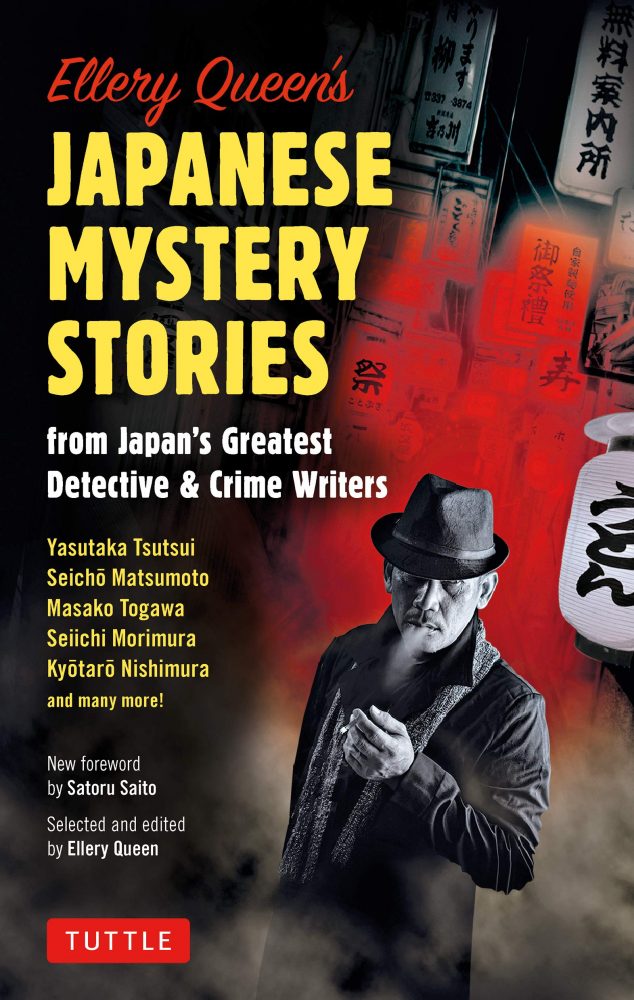
Ellery Queen was both the pseudonym and main character of American mystery writers Frederic Dannay and Manfred Bennington Lee. And here, the two have compiled and edited together their favourite Japanese mystery stories.
In here, you’ll find twelve Japanese mystery stories written by a host of award-winning crime writers, all loved and selected by the excellent Ellery Queen.
These are true classic mystery tales: locked rooms, impossible crimes, breadcrumb trails of clues. 20th Century Japan has a legacy of outstanding crime writing, and here are some of the best Japanese short story writers of that era.
The Book of Tokyo
Edited by Jim Hinks, Masashi Matsuie & Michael Emmerich
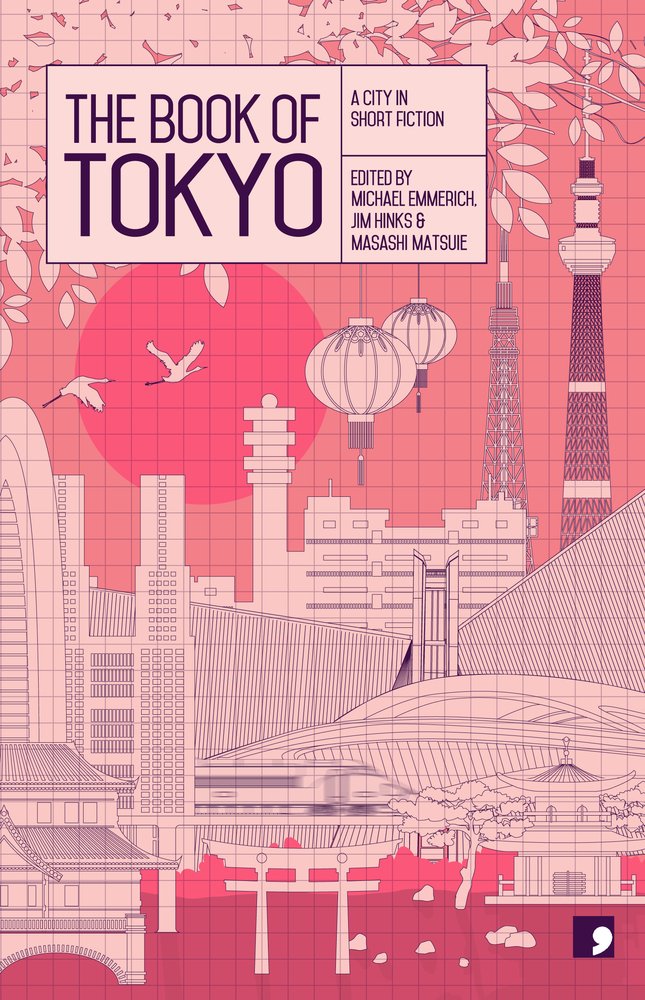
Comma Press is an indie publisher that puts out consistently fantastic collections of literature in translation, from their Refugee Tales series to their “Reading the City” collections.
One of those city collections is The Book of Tokyo, a perfect introduction to the world of Japanese short story writing.
This collection features stories by some of the best authors of Japanese literature: Hiromi Kawakami, Banana Yoshimoto, Nao-Cola Yamazaki, and many more.
These stories were also translated by a star-studded cast of translators: Samuel Malissa, Lydia Moed, Hart Larrabee, Takami Nieda, Jonathan Lloyd-Davies, Morgan Giles, Dan Bradley, Asa Yoneda, Lucy Fraser, Ginny Tapley Takemori.
As the name suggests, these are all stories set in Tokyo that expose the city’s beating heart: the ways in which it glows and enriches, and how it frightens and oppresses. The world’s largest city is a multifaceted place, and we see it from every angle in this collection.
The Penguin Book of Japanese Short Stories
Edited by Jay Rubin
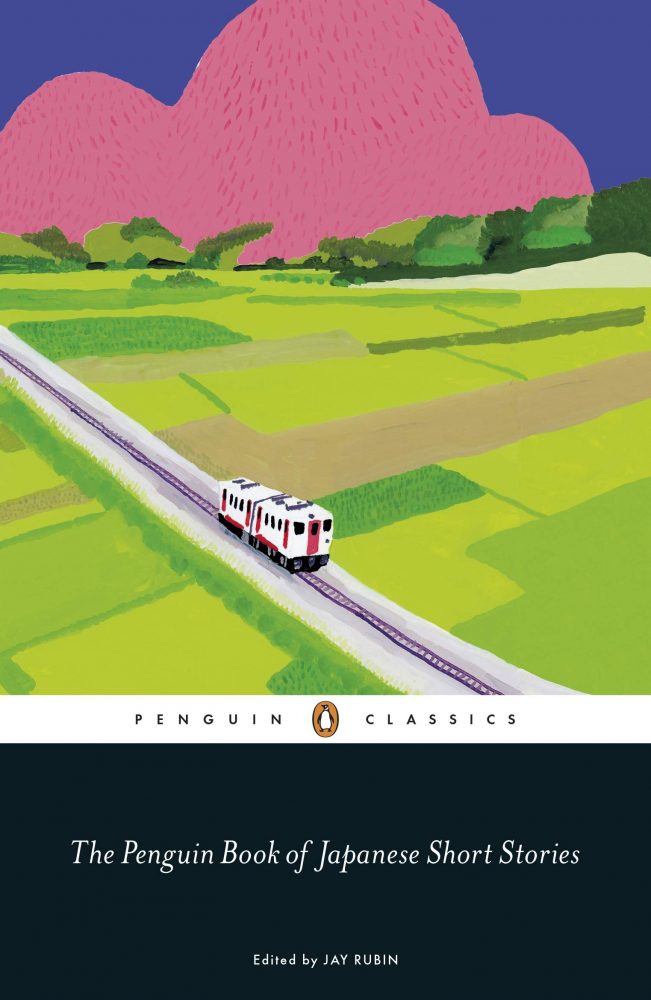
This beefy Japanese short story collection, edited by celebrated translator Jay Rubin (and with an introduction from Haruki Murakami), is a wonderful snapshot of Japan’s literary excellence.
Many of the authors featured in this collection represent the pinnacle of Japanese fiction: Yasunari Kawabata, Yuko Tsushima, Banana Yoshimoto, Ryunosuke Akutagawa. All of 20th Century Japan’s most celebrated writers in one short story collection!

